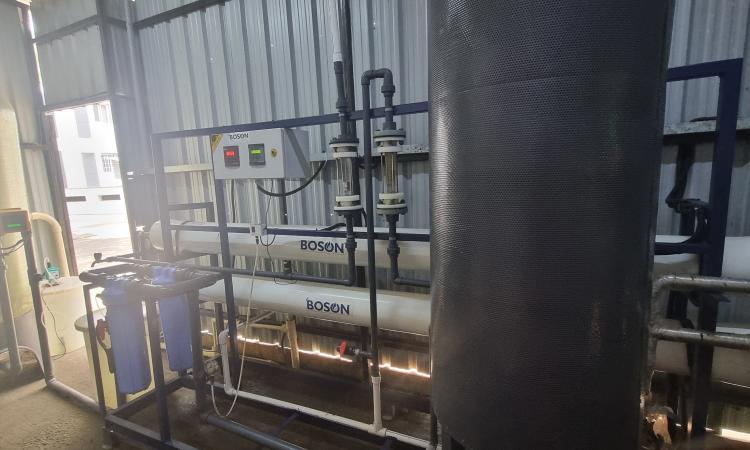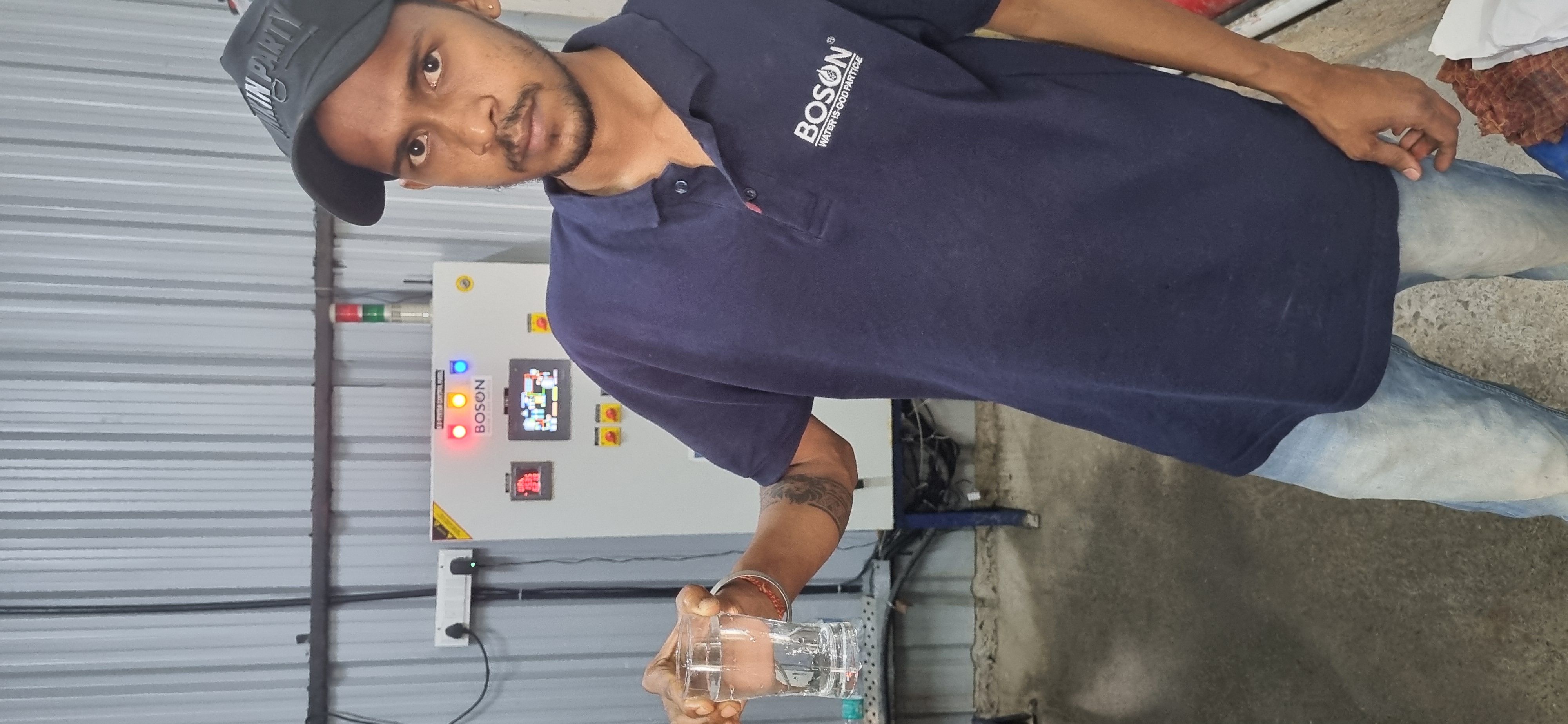
India has only 4 percent of the world's freshwater resources that must meet the demands of 16 percent of the global population that resides in the country. With the projected per capita water availability at 1371 cubic meters by 2031, water stress is expected to rise tremendously, and it will impact all aspects of our lives.
But unlike other complex problems for which we cannot even fathom solutions, we might actually be able to safeguard our water security needs in the future. The answer might make you go “yuck” at the outset, but it is the most promising way to improve water availability in India’s densely populated cities. You might have already guessed where we are headed - “Reuse” or “Wastewater Treatment and Consumption”. Coupled with demand management, this can greatly help communities become water secure in the long term.
Creating space for treated water: The unique effort of Boson White Water
Water is currently a high-volume, low-value commodity. Transporting water is an expensive business, so it is important to use and reuse water where it is available to make its consumption sustainable. Several cities around the world have tried and succeeded in making treated water fit for consumption, and Indian cities can start on this journey too.
To understand what it takes to create a sustainable de-centralised approach to manage wastewater and treat it for reuse in a water-stressed city like Bengaluru, we visited an emerging (and probably the only one) social enterprise in the space: Boson White Water. Set up by two engineers- Vikas Bramhavar and Gowthamam Desingh, Boson has entered a very complex ecosystem to create a space for treated water, so that the water future is better for everyone. We met Vikas, who embodies humility and immense passion for the water cause, and understood the enterprise and its services.
Enabling and challenging conditions in Bengaluru
Major sections of Bengaluru do not have municipal piped water connections and are heavily dependent on water tankers - an informal economy and market which has emerged and grown, dominated heavily by a few local players who operate in a nexus.
Bengaluru has over 3500 apartment complexes which have on-site Sewage Treatment Plants (STPs) as mandated by law, which means that the first level treatment is completed on-site. After accounting for the water used in gardening and flushing, there is still 300 million litres of water that can be reused.
Apartment complexes are required to dispose of their treated water responsibly, which often incurs costs in transportation or heavy fines if they aren’t able to comply. Very recently, the city authorities have allowed for sale of 50 percent treated water for commercial purposes except for food and medicine industries.
The treated water has to be compliant with standards set by the National Green Tribunal (NGT)1. This loosens the zero discharge policy from the past and allows RWAs to earn revenue from the sale of water (current price offered by the municipality to industries is Rs 120/tanker). It is not possible to store STP water, due to which there is limited demand amongst industries to purchase them.
The case study: An apartment complex shows the way
This particular apartment complex, let's call it Demo Heights, is located on Hosa Road. It has 335 houses and an STP capacity of 2 lakh litres/day (200 cubic metres). The residents reuse half of the treated water from STP for gardening (per capita 135 litres) and flushing (per capita 45 litres), which still leaves 1 lakh litres of excess water that needs to be disposed safely.
The Resident Welfare Association (RWA) of Demo Heights needed to pay Rs 900-1000 per tanker (capacity 12000 litres) to get rid of the excess water costing them Rs 3 lakh/month. Hence, they decided to set up the treatment plant with Boson and utilise their services to generate income instead.
Setup and Operational Process:
Boson requires a space of 14 X 22 ft to set the plant up for which they pay Rs 7,500 as rent to the RWA. It additionally pays Rs 8/kWh to the RWA for the energy consumption at the plant. It invests Rs 28 lakh for equipment, taking on all the risks of the operations and looking at a recovery period of 4 years
Win-Win Situation:
Boson recovers 50-75 percent potable water from the treated water released by STP, and releases the remaining back to STP. It purchases the treated water from RWA for sale to industries. RWA now generates a monthly income, either through the rental income paid by Boson or through selling of the treated water totalling to about Rs 15000 at Rs 60/ tanker i.e. Rs 0.5 paise per litre, and saves Rs 3,00,000 on disposal costs.

Can you trust the quality of water generated?
Unlike regular tanker water providers and even municipal connections, every batch of treated and filtered water from the Boson system comes with an automated water quality report, which ensures that the buyers are aware of the quality. It is, in fact, safe to drink this water (trust me, I tried it!).
Why should more apartments adopt the Boson solution?
- RWAs need not worry about disposal of excess water from STPs and can save on costs/ penalties for the same.
- Residents will always have an assured supply of water (almost 50 percent can be put back in the system for reuse) and do not have to worry about scarcity during drought.
- In case there are psychological challenges associated with direct use of treated water, this water can be used for direct borewell recharge and then pumped out for consumption.
- During plush seasons, RWAs can sell excess water to industries through Boson or independently and generate income.
What next for Boson?
Vikas shares that they are looking to take up 40 new projects in the next 2 years. But they need a dedicated team who can support them in this journey. So if you have a passion to be a part of this ambitious enterprise that can really shape the sustainability of Indian cities, do reach out to them here!
Footnotes
1. The treated water should have a pH value ranging between 6.5-8.5, BOD <10mg/l, COD <50mg/l, TSS <10mg/l, ammonical nitrogen concentration <5mg/l, nitrogen <10mg/l, faecal coliform concentration <100 most probable numbers (MPN)/100ml.
/articles/water-reuse-panacea-parching-cities